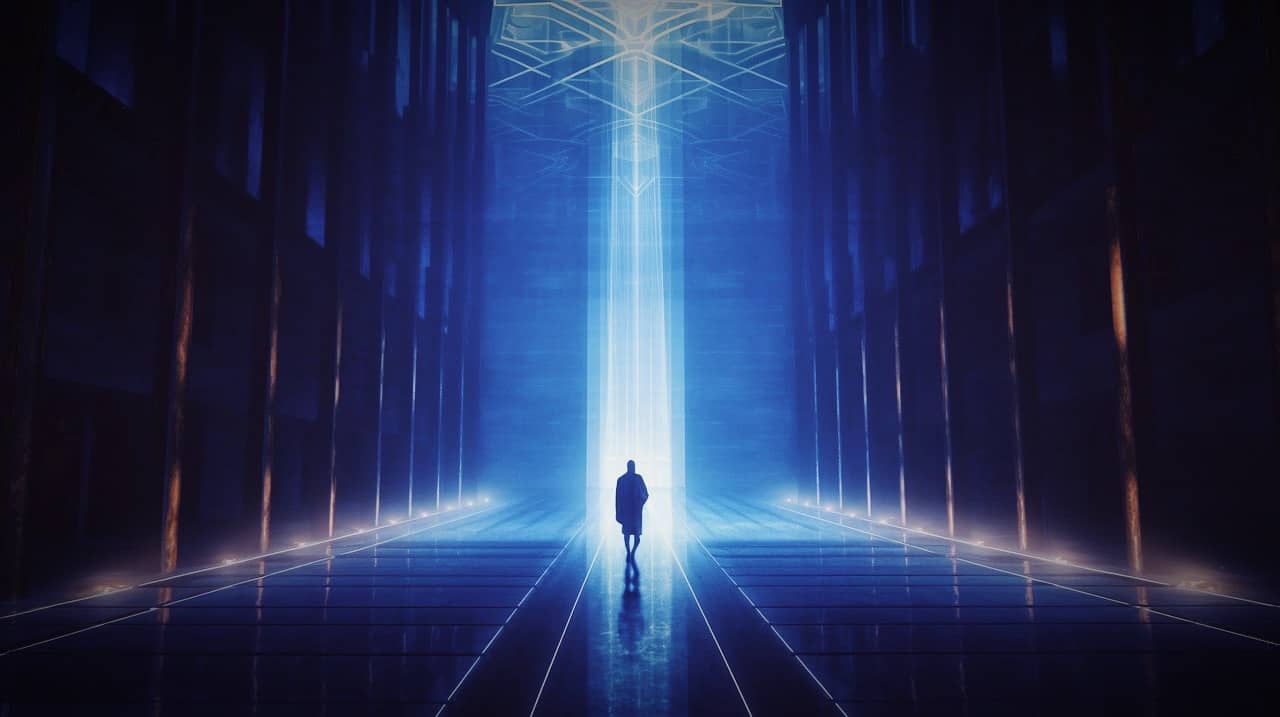‘E.T. The Extra-Terrestrial’ was a huge summer blockbuster in 1982. I remember seeing it at a packed cinema and yet the world portrayed in it seems to now be of the last century. More disturbing is another film released that year which I remember watching at a virtually empty cinema, that was deemed a box office failure at the time, but whose haunting themes and message only seem to resonate more closely with this new millennium. It is now described as prophetic and a cult classic.
‘Bladerunner’ presents a dystopian nightmare of a not too distant future whose complex themes question our human identity. Paul Sammon in ‘Future Noir: The Making of Bladerunner’ (1996), sums this up well when he says:
“Lurking under the film’s pop visuals and trendy special effects is a subtle, dizzying tangle of deeply felt moral, philosophical, and sociological concerns. Take the film’s title a “Blade Runner” could also be interpreted as someone who scampers along the thin edge of life. Or witness the multiple examples of narrative mirroring (or doubling) throughout. Deckard kills two replicants, two replicants save his life. Deckard finds a reason to live; Batty wants to live. Religious parallels are also rampant: Tyrell is literally the replicant’s God, and Batty, Tyrell’s prodigal son, symbolically pierces his hand with a nail, suggesting crucifixion. Even the film’s horizontal/vertical design scheme makes a statement; Blade Runner’s privileged few live in luxurious towers, literally high above the disenfranchised masses below. All the musings are swept aside, however, by the three, key, simple yet profound questions which constitute the core of the film: Who am I? Why am I here? What does it mean to be human?”

These questions resonate even more clearly in our age of the global community. We can invent the persona of whoever we want to be, dispose of that identity, and invent another one in a matter of minutes online. We are constantly bombarded with information and an endless horizon of possibilities and yet there are suggestions that we are ‘communicating’ less in relation to social interactions, the irony being that we may feel less connected to other human beings within this digital communications oasis. And a Kierkergaardian existential despair may develop leaving us residing at ‘What does it mean to be human.com?’
Human beings are social animals. However badly we may do it sometimes, we are designed to relate, it is within our DNA. The received Christian view is that we are not complete as human beings within ourselves. The wholeness we seek cannot be filled by technology, drugs, sex, or the ever increasing acquisition of material goods, “Stuffocation”, as James Wallman aptly puts it in his book of the same name. Instead we may have to begin by letting go of that which we seek to grasp. Or to quote the spiritual realisation that the replicant character, Roy Batty, comes to at the end of ‘Bladerunner’, “All these moments will be lost in time…like tears in rain.”
The Bible makes it clear that immortality is not the goal of human existence, instead ‘eternal life’ is, which we can experience in this life. At the heart of eternal life is a relationship and most relationships require what is commonly termed ‘give and take’, perhaps even sacrifice. (John 17:3) The digital age presents us with endless promises of acquisition and yet the human soul seems to become enlarged when we face that which we are prepared to lose. (Matthew 16:25). This spiritual practice is not only common to Christianity but to Buddhism and there are numerous instances where a dialogue has developed on this subject. I think it is no coincidence that there has been a continuing rise of interest within medical, secular, as well as religious circles, in the practice of mindfulness in recent years. Although there may be different conclusions on why this has happened, its popular ascendancy within only a matter of a decade cannot be ignored.
Whatever our religious beliefs or philosophical viewpoints, it seems to be true that the human spirit often grows through a healthy form of materialistic detachment, challenge, even adversity, and not consumerist acquisition. The former gives birth to self-realisation and fulfilment while the latter may feed upon our status anxiety and fear. And what we can discern is that the predictions of ‘Bladerunner’ will always be replicated if we persist in ignoring a very ancient yet modern truth, whatever value system we may profess:
The future is only dark if we have no faith in the dawn…


